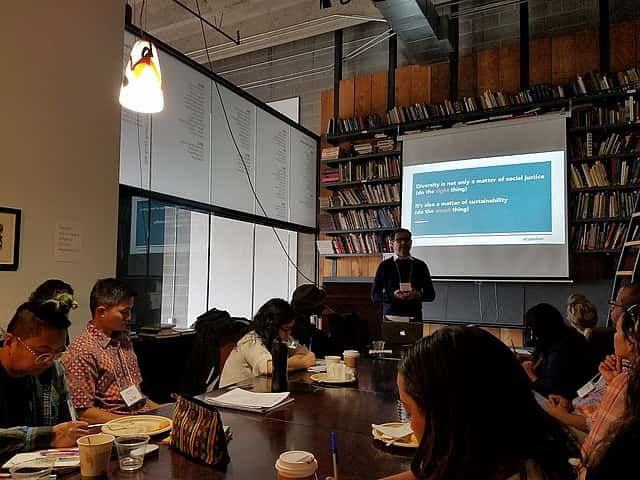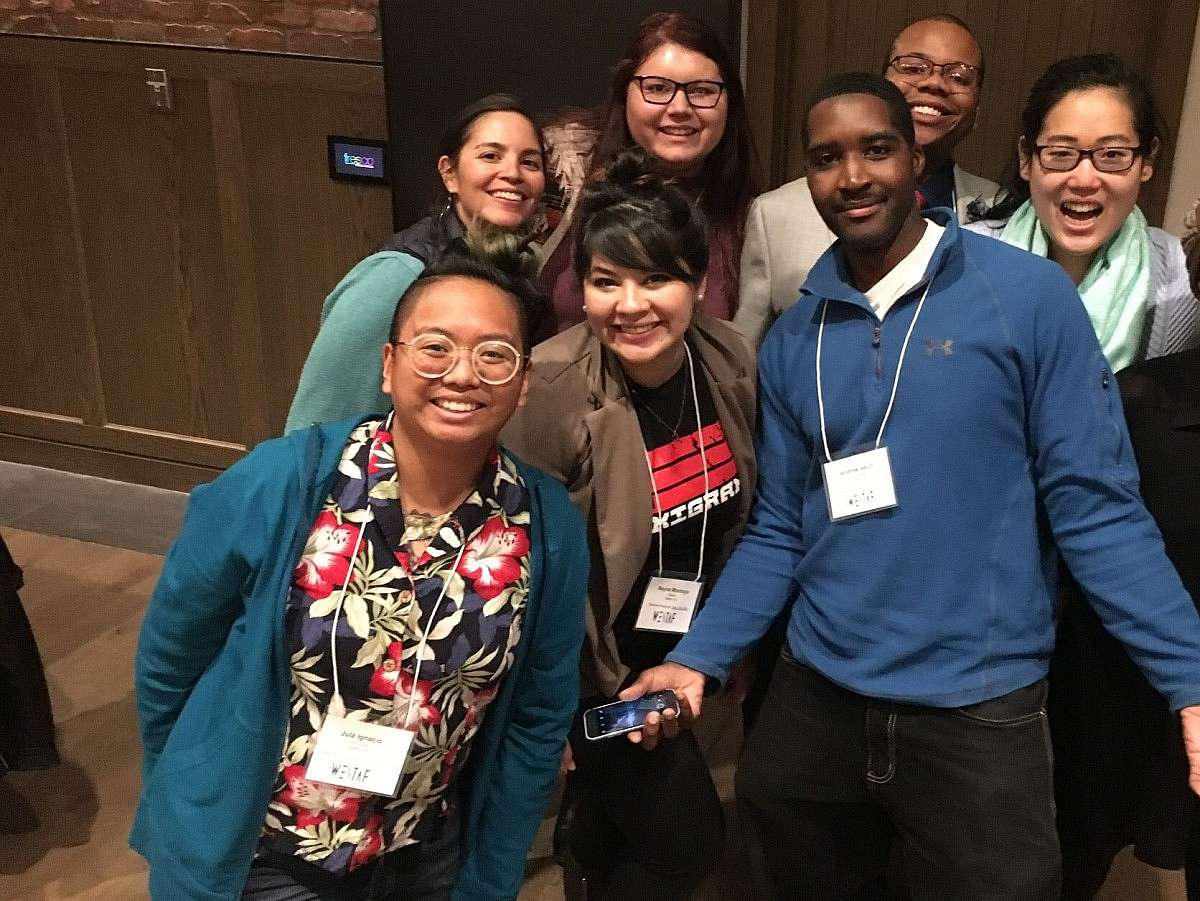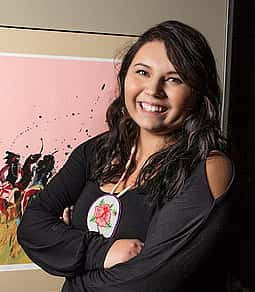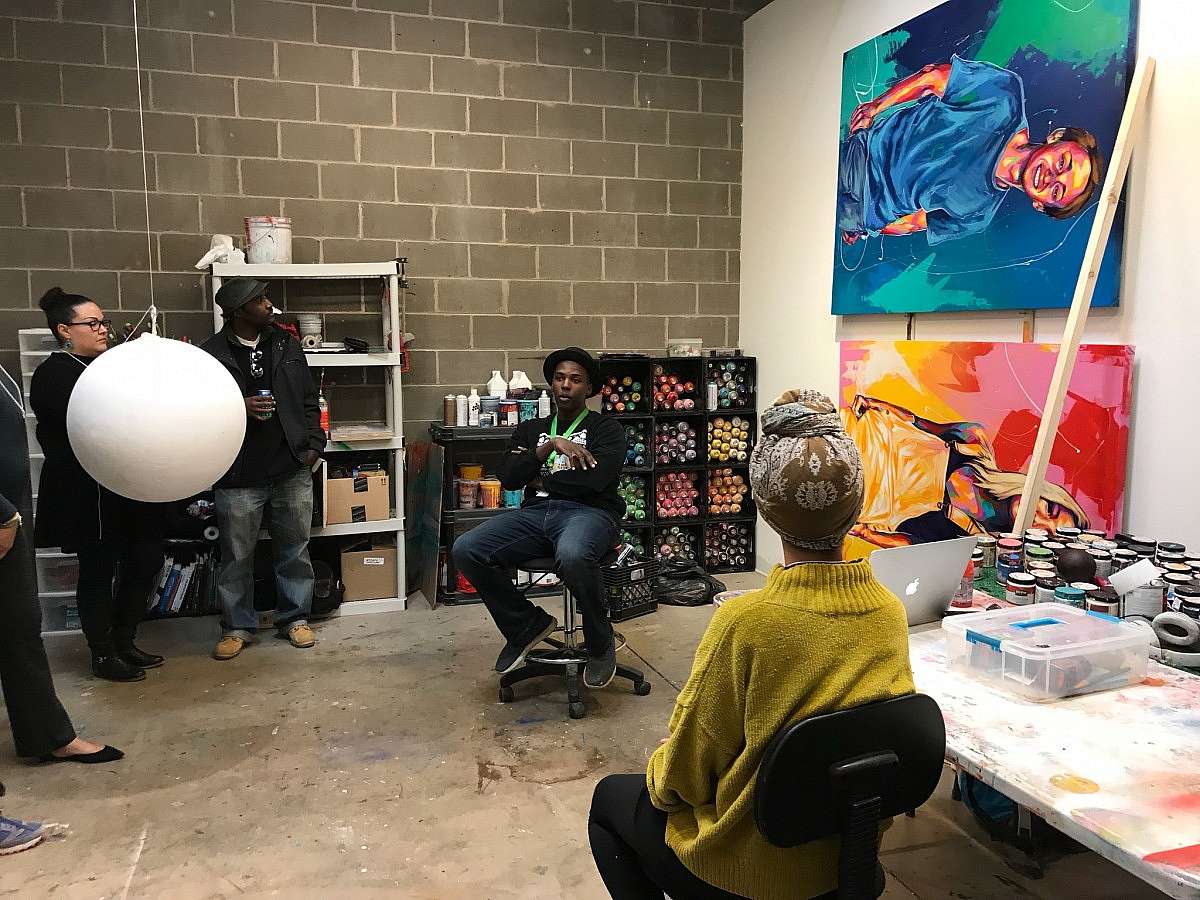
Hunter Old Elk receives prestigious diversity fellowship
“Democracy demands wisdom and vision in its citizens. It must therefore foster and support a form of education, and access to the arts and the humanities designed to make people of all backgrounds and wherever located masters of their technology and not its unthinking servants.”[1]


On November 13th-15th, 2017, Hunter Old Elk, Curatorial Assistant for the Plains Indian Museum attended the WESTAF: Emerging Leaders of Color Professional Development Program. She was selected as a fellow in September 2017. The Western States Arts Federation’s (WESTAF) commitment to multicultural leadership and equity in the arts is manifest in its Emerging Leaders of Color Professional Development Program.
The program, which began in 2010, is based on WESTAF’s core values related to supporting communities of color, indigenous peoples, and other underrepresented ethnic communities. It aims to build a cohort of arts leaders of color in western states who share the goal of advancing inclusive and equitable arts and culture sector. Through the program, WESTAF annually convenes a three-day workshop for arts administrators and arts-focused community leaders. The program focuses on persons of color arts administrators who are 35 years of age and under and work in the WESTAF region. Old Elk represented Wyoming and was one of thirteen from the western states. She was the only Native American arts administrator in her cohort.
Persons of color recurrently rally for basic rights to Life, Liberty, and the Pursuit of Happiness. A reaction to these experiences is representative of the art and music created from their individual experiences. Take for example Reservation-Era art representing the plight of Indian people. The rise and support of persons of color art administrators are especially significant because those individuals in their communities have impacts which further cultural institutions. POCs create relationships between marginalized communities which fosters relevant spaces for ideas and healing.
The ELC workshop focused on leadership sessions such as policy-making; addressing sustainability through demographic changes; the purchasing power minority groups will have in the future; and strategic foresight for diversity and inclusion in the arts. In the words of presenter Salvador Acevado, “Diversity is not only a matter of social justice (do the right thing). It’s also a matter of sustainability (do the smart thing).”

[1] National Foundation on the Arts and the Humanities Act of 1965, National Endowment for the Arts-Fiscal Year 2010 Appropriations, and Related Agencies: 20 U.S.C 951 (2010)
Written By
Hunter Old Elk
Hunter Old Elk (Crow & Yakama) of the Plains Indian Museum at the Buffalo Bill Center of the West, grew up on the Crow Indian Reservation in Southeastern Montana. Old Elk earned a bachelor's degree in art with a focus on Native American history at Mount St. Mary’s University in Maryland. Old Elk uses museum engagement through object curation, exhibition development, social media, and education to explore the complexities of historic and contemporary Indigenous culture. She is especially inspired by the stories of Native American women who lived and thrived on the Plains. Facebook/ Instagram: @plainsindianmuseum

